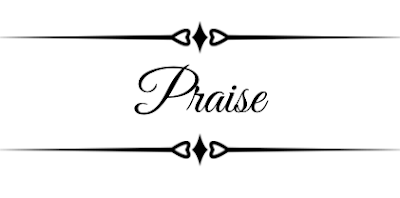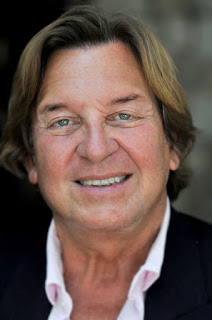Ranger
(Storm of War, Book 1)
By Timothy Ashby
(Storm of War, Book 1)
By Timothy Ashby
Publication Date:17th January 2022
Publisher: Sharpe Books
Page Length: 347 Pages
Genre: Historical Action/Adventure
West Indies, 1796.
Alexander Charteris - the mixed-race son of an aristocratic planter and a slave mother - is raised as a gentleman amidst the country houses and London drawing rooms of Georgian England. Tricked out of his inheritance by his cousin Pemberton - Chart is kidnapped and transported to the island of Grenada where he endures the hell of slavery on a sugar plantation.
When Pemberton arrives at the plantation, accompanied by Chart’s former lover, Lady Arabella, he orders Chart’s torture and execution. A slave revolt ensues, before the order can be carried out. Chart initially joins the revolutionaries but is sentenced to death for refusing to take part in a massacre of British colonists. Aided by the beautiful daughter of the rebel general, Julian Fédon, Chart escapes.
He is recruited into a new British unit called the Loyal Black Rangers and promised freedom if he fights against the French.
Chart confronts conflicting loyalties as he leads his men in vicious bush-fighting. He rises through the ranks and plays a pivotal role in the bloody battle that crushes the rebellion.
But the soldier must confront one more enemy, that of his treacherous cousin, before he can find peace.
"A rip-roaring tale, based on real characters and events, and introducing a fabulous dual heritage hero for our times."
Saul David, author of Hart of Empire
Mary Ann: Congratulations on the recent release of Ranger (Storm of War, Book 1). Before we begin, please tell us a little about who you are and what compelled you to write historical fiction?
History has fascinated me since my earliest childhood memories. Soon after learning to read, I was captivated by Rosemary Sutcliffe´s tales of Roman Britain and F. Van Wyck Mason´s wide-ranging historical novels. For me, historical fiction brings the past to life more effectively than non-fiction (although I have also published histories with a narrative approach to make dry facts more appealing to readers).
Mary Anne: Could you tell us a little about your new book and what inspired you to set your story during the West Indies Campaign (1793-1798)?
I lived on the Caribbean island of Grenada between my early teens and 20s. As a teenager, I spent more time exploring historical sites – old forts and plantations - and indulging my love of archaeology. I was aware of the wars and revolutions that had convulsed the island in the late 18th century, the most notable of which was Fedon´s Rebellion from 1795-1796, an insurrection against British colonial rule backed by Revolutionary France. Later, in London, I researched this conflict and published a two -part article about it in the Journal of the Society for Army Historical Research. I always planned to write a work of fiction about Grenada in the 18th century with a focus on Fedon´s Rebellion.
The result, Ranger, is the story of Chart, a mixed-race man, born the son of an aristocratic English plantation owner and a Garifuna (Black Carib) mother. After his mother´s death following his birth, Chart is taken to England and raised as a gentleman in London and Leicestershire. He wants a career as a soldier, but as mixed-race men were denied British Army commissions, he joins the East India Company army and fights in the Mysore campaign. His father is murdered, leaving his estate to Chart, who returns to London and is cheated out of his inheritance by his cousin, who then has Chart kidnapped and taken to Grenada to be enslaved on the family plantation. Chart is freed by Fedon´s Rebellion, but is appalled by the rebels´ cruelty. He escapes from them and is recruited into a new British Army unit called the Loyal Black Rangers (which really existed). Caught between two worlds, conflicted about his identity, Chart serves with distinction and becomes an officer.
Mary Anne: What were the challenges you faced in researching this period of history?
I didn´t face many challenges. There is a great deal of primary source material available (much of which I used for my previous articles), and I had explored the island terrain as a young man. My biggest challenge was to bring my conflicted, mixed-race protagonist “to life” – to try to imagine myself in his shoes in the 18th century.
Mary Anne: What do you think is the most challenging aspect of writing Historical Fiction during this era?
To be honest and relate history truthfully, without being concerned about whether some people might be offended. For example, I describe in brutal detail the horrific treatment of slaves on some West Indian plantations, all based on primary research sources such as 18th century diaries. On the other hand, the leader of Fedon´s Rebellion, Julian Fedon, was a mixed-race man of French descent who was himself a major slave owner and planter, and his brother was Grenada´s chief “slave catcher”. History is nuanced. We can interpret it, but facts should be immutable.
Mary Anne: One last question, what are you currently working on?
My non-fiction biography, Elizabethan Secret Agent: The Untold Story of William Ashby (1536-1593), will be published on 30 March in hardback. I am also researching my next (Storm of War, Book 2) novel set during the War of 1812 when the British Army burned Washington DC and was badly defeated at the Battle of New Orleans.
Julien Fédon had not slept. His entire being was suffused with bitter disappointment that had long since swept away the vestiges of defiance. He had stood by the battery below the guillotine for most of the night after drafting his final manifesto under the brooding eyes of his officers. Just before midnight his daughter Céleste had begged him in choking sobs to go to the side of her dying mother who was asking for him. But he ignored her and sent her back to the family's simple hut under guard.
Now he watched hundreds of bivouac fires dotting the dark valley around his former home, seeing how they flickered like fireflies as troops moved past them. Abercromby's army was massing at the foot of the mountain and he knew the redcoats would attack at dawn. The Brigands could delay the infantrymen as they struggled up the slope but would be unable to repel them. He was especially fearful of the Black Rangers and their German comrades in arms, who he expected to be in the vanguard. But the rebel general had an escape plan; it was risky but needed to bolster his men's spirits so they would not feel trapped.
A last act of revolutionary bravado was needed. When Abercromby trained his telescope on Camp de la Mort as the sun rose, he would see the quartered pieces of the English milord dangling from the top of the guillotine, and his aristocratic head would be the final missile launched from the mortar.
Fédon turned to the renegade French captain Noguet.
“Fetch the English colonel here. Take two men in case he must be carried.”
******
Chart's fingers scrabbled across the side of the rough-hewn stock until he found the crude dowels securing Hugh's arms and legs. Both were hammered too tightly into the holes to extract with his fingers.
“Is anyone else here with you?” he rasped.
“I'm the only living one left,” Hugh answered in a barely perceptible voice. “Couple of bodies in the far corner, I think.”
“Are you injured? Can you walk?”
“No and hopefully. Need water.”
“Need to get you out of here,” said Chart, coming to a decision. He took the mallet from his belt, felt for the bottom of the lowest dowel, and began gently tapping to loosen it. As he finished the upper pin a light appeared outside the doorway accompanied by voices speaking in guttural patois.
Chart leaned close to Hugh's ear.
“Keep still!” he hissed, then moved swiftly to the side of the doorway with a cutlass in one hand and sword bayonet in the other.
******
“You hear that?” the man carrying a rushlight torch said in a tremulous voice. “Coming from inside.”
“Lot of jumbies here round this place,” another Brigand said. “They make tapping sound like that!”
“Primitive nonsense!” snarled Noguet, who had failed to hear the noise which had now ended. “Ghosts do not exist!”
As the two ragged soldiers with slung muskets hesitated fearfully at the prison entrance, the French captain thrust forward, seized the torch and opened the door.
“Follow me,” he ordered, sweeping the torch over Hugh’s inert form as the men hesitantly followed.
“You see, no ‘jumbies’ here,” Noguet sneered, “just the milord, although he does look dead.”
Chart sprang from the darkness, whirling like the dervishes he had seen in Bengal. He swung the cutlass, nearly scalping Noguet, who screamed and let the torch fly into a heap of rags and dried thatch. Simultaneously, Chart stabbed the bayonet into the chest of one of the soldiers. Pivoting, he hacked and stabbed with an almost superhuman fury at the other man. Both Brigand soldiers were dead in seconds.
“Behind you, Chart!” Hugh gasped.
Chart spun to see Noguet, face twisted in a rictus of agony, fumbling for a pistol in his belt. Despite his blood-curtained face, in the light of the spreading flames Chart recognised him as the French officer who had ordered the killing of his friend Titus, the murderer of the concubine at La Sagesse and the commander of the firing squad that had massacred the British prisoners. Teeth bared in rage bordering on madness, Chart slashed open the Frenchman's belly spewing his entrails like purplish serpents down his waist. Chart was on the verge of beheading Noguet as he dropped the pistol and doubled over, but halted the cutlass in mid-swing.
“Non,” he hissed in French, “you die slowly.”
Hooking the bloody cutlass to his cross belt, he dragged Noguet to the fire consuming the bamboo walls of the prison and hurled him into the flames, where the Frenchman convulsed and screamed weakly. Panting, he returned to Hugh, pulled out the loosened dowels and flipped open the heavy wood stocks.
“They'll be on to us in minutes,” he said, helping Hugh to his feet. “Can you walk?”
Drummond took a few tentative steps and croaked “yes”.
“We need to hold out until the assault comes. I remember a spot that's the best defensive position we can hope for.”
Slinging the firearms over his shoulders, he helped Drummond outside as the building erupted in flames behind them. They made their way towards an outcropping of boulders fifty paces from the burning hut, hearing shouts from the direction of the barracks.
The sky was steadily lightening as they knelt behind the rocks. Chart handed the canteen to Hugh, quickly shrugged off his blue uniform and pulled on the scarlet coat.
“Hope that slakes your thirst,” he said as he checked the loads and priming of the two muskets.
“Grog,” replied Hugh, wiping his whiskered lips with a dirty hand, “Better than mother’s milk at the moment.”
“They're coming,” Chart said, handing a musket and cartridge box to Drummond as he saw figures running through the twilight towards the burning prison. He looked at the sky and frowned.
Only 0.99 on #Kindle for a Limited Time
Read for FREE with #KindleUnlimited subscription
Dr Timothy Ashby has held two Top Secret security clearances and served as a senior government official, lawyer and international businessman. A graduate of the University of Edinburgh, Scotland, he is the author of six books, including the forthcoming hardcover non-fiction work Elizabethan Secret Agent: The Untold Story of William Ashby (1536-1593) and over 100 articles on history and international relations in publications such as The Harvard International Review, RUSI Journal, US Naval Institute Proceedings, and Journal of the Society for Army Historical Research. He also published four historical thrillers – Ranger, Devil´s Den, In Shadowland and Time Fall.
Connect with Dr Timothy Ashby:










Such an interesting interview. Thank you for sharing.
ReplyDeleteThank you for sharing.
ReplyDeleteAn attention getter in every sense of the phrase. Can't wait to crawl into Tim's mind and enjoy the ride.
ReplyDelete